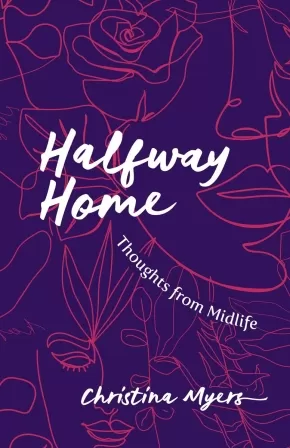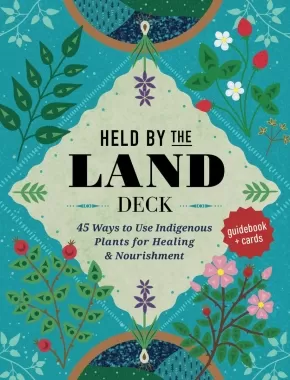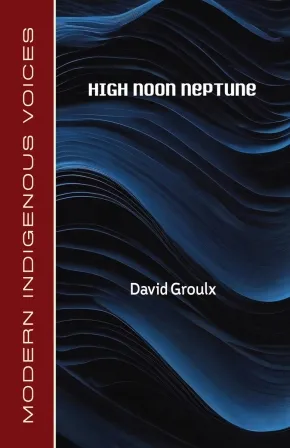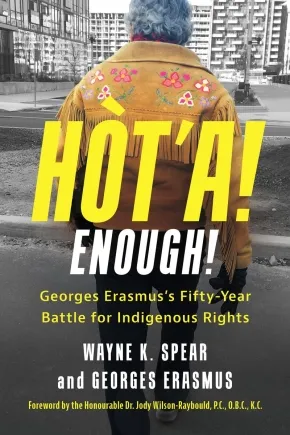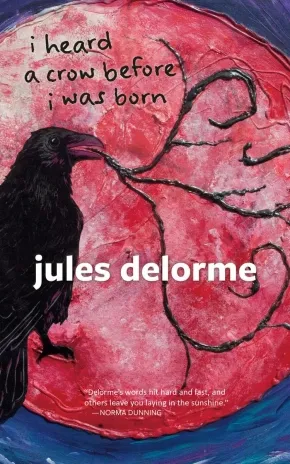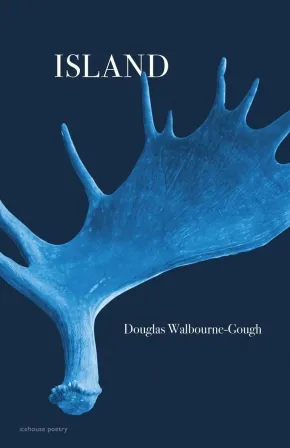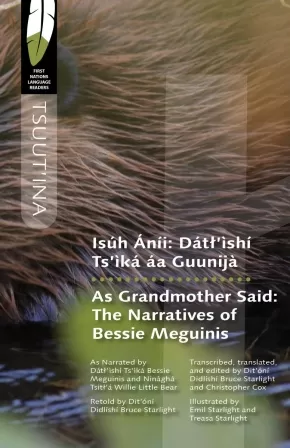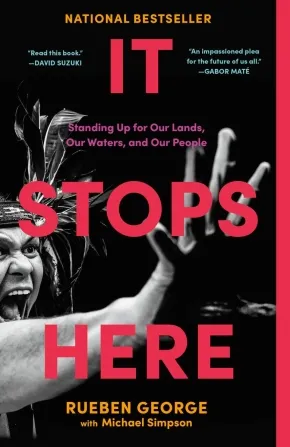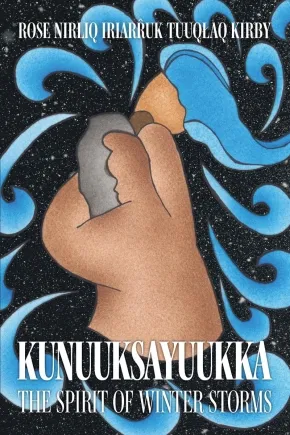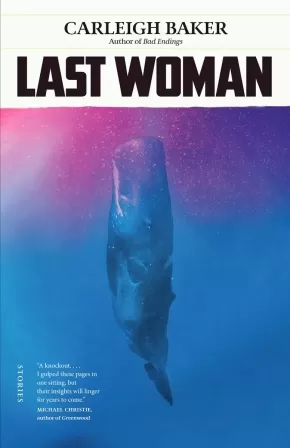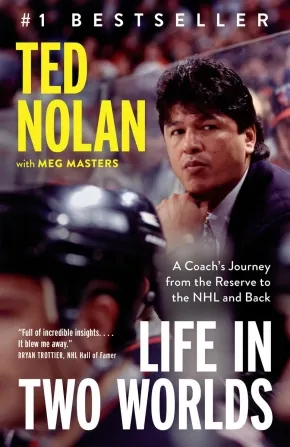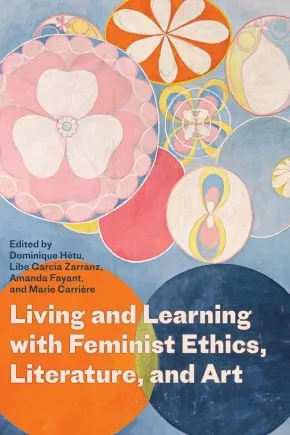Indigenous Peoples in Canada
Synopsis:
Award-winning author Christina Myers navigates the uncharted territory of midlife in a time of rapid social, cultural, and environmental change.
Modern midlife is finding oneself halfway home but without any reliable maps for the route ahead. With wit and warmth, these personal essays move from a first bra to first hot flashes to consider the lessons we learn through media and culture--and from each other--about bodies, sexuality, fatphobia, gender roles, and what we should want in life. Christina Myers explores the ways that beauty standards and cultural expectations around femininity have shaped our identities and how we might shed those going forward; the power of friendships and the value of having other women to learn from; the anxiety of moving through motherhood into menopause in a time of global environmental crisis and political upheaval; and the uncertainty of how this stage of life should unfold, as old systems shift and crumble. Though our maps for midlife are never identical, we discover familiar paths and common landmarks in each other's stories; these essays remind us there are others on this trail with us, just behind or just ahead, out of sight. We are not alone.
Reviews
"Reading Halfway Home feels like having a conversation with a very wise, witty friend. Christina Myers's delightful collection of essays about the stages of a woman's life is personal, but also universal. We've all been there, and it's a joy to realize that we're not alone on the journey." — Elizabeth Renzetti, author of Shrewed: A Wry and Closely Observed Look at the Lives of Women and Girls
"Christina Myers effortlessly charts the often-overlooked territory of being a woman in today's complex society. Through insightful personal essays, she explores the intricate intersections of femininity, friendship, motherhood, and environmental turbulence, all with a nostalgic flair. With much-needed humour and wisdom, Myers reminds us that even in the midst of uncertainty, we're never alone on this journey. This book is a necessary, heartfelt guide for those seeking their own unique path through the maze of midlife. A must read!" — Chelene Knight, award-winning author of Let It Go: Free Yourself from Old Beliefs and Find a New Path to Joy
"Halfway Home is a love letter to mothers and grandmothers, sisters and daughters, witches and crones. Christina Myers's storytelling is gentle and honest, a must-read memoir for women of all ages. So many times, I found myself nodding and exclaiming, 'Yes! That's exactly it!' It's a mirror but also an invitation to join a secret coven of wise women." — K. J. Aiello, author of The Monster and the Mirror: Mental Illness, Magic, and the Stories We Tell
Educator Information
Includes one chapter focusing on the author's Indigenous identity.
Additional Information
200 pages | 5.50" x 8.50" | Paperback
Synopsis:
Have Indigenous plant knowledge at your fingertips with this gorgeously illustrated card deck from Leigh Joseph, an ethnobotanist and a member of the Squamish Nation.
Plants can be a great source of healing as well as nourishment, and the practice of growing and harvesting from trees, flowering herbs, and other plants is a powerful way to become more connected to the land. The Indigenous Peoples of North America have long traditions of using native plants as medicine as well as for food. Held by the Land Deck includes 45 cards of indigenous plants and their properties and a 48-page booklet to guide you along the way. Here are some of the things you will find:
- Tips to build your own home apothecary
- Notes on how to mindfully harvest and connect to the land you’re on
- Recipes for infused oils and salves
- A botanical glossary to help out with some of the more technical language
- Checklists for safe and sustainable harvesting
This beautifully illustrated card deck includes plants that are culturally significant to the Pacific Northwest, including Western Red Cedar, Devil’s Club, Broad-Leaved Plantain, Camas, Wapato, and Red Laver. Special features in the booklet include recipes for food and beauty products along with stories and traditions around the plants.
This elegant, full-color card deck and booklet is your go-to guide for Indigenous plants and will give you new insights into the power of everyday nature.
Additional Information
48 pages | 4.50" x 5.90" | 45 Cards and 48-Page Booklet
Synopsis:
High Noon Neptune is a powerful poetry collection that delves into important issues of loss, love, class, and capitalism. Throughout this book, the reader is taken on a journey of survival, where the intersections of identity and oppression are explored with clarity and reverence. The poems shed light on the complexities of living in a society that is rife with discrimination and inequality, and the battles that individuals face to survive within these intersecting systems. This book fearlessly navigates through societal and personal struggles with a sharp wit and bold defiance. With each poem, David Groulx confronts and challenges the societal norms and structures that perpetuate injustice and inequality. High Noon Neptune offers a raw and unapologetic perspective on the realities of navigating life as a marginalized individual. This poetry collection is a powerful testament to the resilience and strength of those who refuse to be silenced and continue to fight for survival.
Educator & Series Information
This book is part of the Modern Indigenous Voices series.
Additional Information
88 pages | 5.50" x 8.50" | Paperback
Synopsis:
The political life of Dene leader Georges Erasmus - a radical Native rights crusader widely regarded as one of the most important Indigenous leaders of the past fifty years.
For decades, Georges Erasmus led the fight for Indigenous rights. From the Berger Inquiry to the Canadian constitutional talks to the Oka Crisis, Georges was a significant figure in Canada's political landscape. In the 1990s, he led the Royal Commission on Aboriginal Peoples and afterward was chair and president of the Aboriginal Healing Foundation, around the time that Canada's residential school system became an ongoing frontpage story.
Georges's five-decade battle for Indigenous rights took him around the world and saw him sitting across the table from prime ministers and premiers. In the 1980s, when Georges was the National Chief of the Assembly of First Nations, he was referred to as the "Thirteenth Premier." This book tells the personal story of his life as a leading Indigenous figure, taking the reader inside some of Canada's biggest crises and challenges.
Awards
- 2025 Indigenous Voices Awards - Prose in English Award
Additional Information
320 pages | 6.00" x 9.00" | 57 b&w illustrations | Paperback
Synopsis:
A teacher lesson plan to further explore the book, I am Connected. May include comprehension questions, group activities, conversation starters, quizzes, language arts activities, and colouring pages.
We are all connected. Whether it is with your family, the mossy earth beneath your feet, the warm guidance of your ancestors, you belong in connection with all around you.
Along the backdrop of Haida Gwaii's breathtaking landscapes, Indigenous storyteller, Ḵung Jaadee, invites you to witness the many threads of relationship that connect us across time and space.
What makes you feel connected?
Educator Information
This lesson plan accompanies the book I am Connected.
Additional Information
15 pages | 8.50" x 11.00" | Loose Leaf Packet
Synopsis:
i heard a crow before i was born.
i heard tsó:ka’we before i was born.
i heard a crow before i was born opens with a dream-memory that transforms into a stark, poetic reflection on the generational trauma faced by many Indigenous families. Jules Delorme was born to resentful and abusive parents, in a world in which he never felt he belonged. Yet, buoyed by the love shown to him by his tóta (grandmother) and his many animal protectors, Delorme gained the strength to reckon with his brutal childhood and create this transformative and evocative memoir.
Across chapters that tell of his troubled relationships, Delorme unwraps the pain at the centre of his own story: the residential schools and the aftershocks that continue to reverberate.
In this stunning testament to the power of storytelling — to help us grieve and help us survive — Delorme tells the story of his spirit walk as he embraces the contradictions of his identity. As he writes, “i heard a crow before i was born is a man looking back, and dreaming back, and seeing that life, in whatever form it takes, however harsh it might seem, is beautiful.”
Reviews
“Jules Delorme is an unconventional storyteller and writer. His exploration of self through the eyes of being ‘half white on the reserve and half Indian in the city’ speaks to his vast experience as a Kanien’kehá:ka man in Canada. Jules has lived and continues to live the life of a man who has leapt over every hurdle that life places in front of him. To be able to write of his life in the way that he has shows his determination. Thank you, Jules, for taking us all on your spirit walk.” — Norma Dunning, award-winning author of Tainna, July 2024
Additional Information
164 pages | 5.00" x 8.00" | Paperback
Synopsis:
At its core, Indigenous Child and Youth Care: Weaving Two Heart Stories Together is about unity. It seeks to create a heart-to-heart practice by bridging Indigenous ways of knowing with Western Child and Youth Care practices, encouraging students to approach their work with a more open understanding of First Nations, Métis, and Inuit worldviews.
Author Cherylanne James guides students through self-location by dismantling their pre-existing biases regarding Indigenous Peoples, understanding personal privilege and power, educating themselves on Canadian and Indigenous history and contexts, and learning about the pervasive impacts of colonialism. Students will cultivate a practice that encourages ethical spaces of engagement while steering away from surface-level or disingenuous interactions.
The text applies concepts and theories such as relational accountability, interconnectivity, resurgence, community-centred approaches, wise practices, relationship-building, anti-oppression, anti-racist, and social justice frameworks to enrich CYC practices and prepare students to engage with Indigenous children, youth, and families in an informed, meaningful way.
Indigenous Child and Youth Care is designed as a journey, wherein the student reflects while they learn and grow as a CYC professional. It includes a variety of pedagogical features that catalyze thoughtful interaction with the material, such as a glossary, discussion questions, reflective practice question boxes, and additional resources for further learning. This is a powerful and vital text for college and university students in Child and Youth Care and Human Services.
Features
- unites Indigenous worldviews, histories and knowledge systems with western Child and Youth Care practices
- exposes students to pre-existing colonial and racist power structures while introducing them to Indigenous concepts and theories for inclusive practice
- contains a broad variety of pedagogical features, including a glossary, reflective practice questions, discussion questions, activities, and additional resources
Educator Information
Table of Contents
Acknowledgements
Introduction
SECTION 1 CONTEXT FOR INDIGENOUS CHILD AND YOUTH PRACTICES
Chapter 1 Self-Location
Chapter 2 Storying Identity
Chapter 3 Living History
Chapter 4 Wise Practice: The Self (Part 1)
Chapter 5 Wise Practice: Working within Spaces and with Others (Part 2)
SECTION 2 CHALLENGES
Chapter 6 Canadian Child Welfare’s Impact on Indigenous Children, Families, and Communities
Chapter 7 MMIWG2S People and Gender-Based Violence
Chapter 8 Trauma
Chapter 9 Legislation, Calls to Action, and Policy
SECTION 3 CHILD, YOUTH, FAMILY, AND COMMUNITY APPROACHES
Chapter 10 Heart-Centred Practice: Fostering Love through Indigenous Approaches to Child and Youth Work
Chapter 11 Supporting Kinship and Family Relations
Chapter 12 Community Wellness: Land, Water, Language, and Community
Chapter 13 Resurgence and Resistance: Re/Centring Indigenous Children and Youth through Strength-Based Approaches
Closing Heart-to-Heart Practice
Child and Youth Care Certification Board
Glossary
Index
Additional Information
308 Pages | 6.75" x 9.75" | Paperback
Synopsis:
“Canada rejected our applications for enrolment in the Qalipu First Nation. Initially, I was relieved by the rejection. I’d watched my hometown divide itself — are you Mi′kmaq or settler? Mi′kmaq or not Mi′kmaq enough?”
Centred around the Newfoundland Mi'kmaq experience in the wake of the controversial Qalipu First Nation enrolment process, Island wades through the fracture and mistrust that continues to linger in many communities. In this new collection, Douglas Walbourne-Gough expands upon issues of identity and history that he introduced in Crow Gulch, offering a deeply personal and equally beautiful exploration of Mi'kmaw and Newfoundland identity.
Walbourne-Gough’s narrative poems trace the formation of identity, not through status documentation, but through its deeper roots in childhood memories, family, spirituality, and dreams. Throughout this collection, he approaches life in fragments — snuggling into his nan’s sealskin snowsuit, learning Mi'kmaq from an app, or the myriad of complex emotions that come with receiving a status card — and watches them transform into pieces of an everlasting puzzle. Island reckons with an often-ignored, yet persistent, effect of colonialism — fractured identities.
Additional Information
80 pages | 5.50" x 8.50" | Paperback
Synopsis:
The first book published in Tsuut’ina—a critically endangered language—in over a century!
With fewer than 150 speakers, Tsuut’ina is a critically endangered language. Isúh Áníi / As Grandmother Said brings together nine traditional narratives and historical accounts in the Tsuut’ina language, originally narrated by Elders Dátł’ìshí Ts’ìká Bessie Meguinis (1883–1987) and Ninàghá Tsìtł’á Willie Little Bear (1912–1989). At once an act of language preservation and a learning resource, each story is retold in Tsuut’ina by Dit’óní Didlíshí Dr. Bruce Starlight and is presented with English translations and a Tsuut’ina-to-English glossary.
The narratives included in this collection cover considerable ground, ranging from the creation of the world in the caring hands of Xàlítsa-tsii and his animal helpers, to accounts of separation, migration, and cross-cultural contact that mark major turning points in Tsuut’ina history, and to important cultural and ceremonial items and practices that the Tsuut’ina Nation maintains to this day.
These stories will be of lasting value to Tsuut’ina language learners and teachers, and will share the legacy of Elders Bessie Meguinis and Willie Little Bear with generations of Tsuut’ina to come.
Educator & Series Information
This book is part of the First Nation Language Readers series. With a mix of traditional and new stories, each First Nations Language Reader introduces an Indigenous language and demonstrates how each language is used today.
Additional Information
186 pages | 5.50" x 8.50" | Paperback
Synopsis:
A personal account of one man’s confrontation with colonization that illuminates the philosophy and values of a First Nation on the front lines of the fight against an extractive industry, colonial government, and threats to the life-giving Salish Sea.
It Stops Here is the profound story of the spiritual, cultural, and political resurgence of a nation taking action to reclaim their lands, waters, law, and food systems in the face of colonization. In deeply moving testimony, it recounts the intergenerational struggle of the Tsleil-Waututh Nation to overcome colonial harms and the powerful stance they have taken alongside allies and other Indigenous nations across Turtle Island against the development of the Trans Mountain Pipeline—a fossil fuel megaproject on their unceded territories.
In a firsthand account of the resurgence told by Rueben George, one of the most prominent leaders of the widespread opposition to the Trans Mountain Pipeline expansion, It Stops Here reveals extraordinary insights and revelations from someone who has devoted more than a decade of his life to fighting the project. Rueben shares stories about his family’s deep ancestral connections to their unceded lands and waters, which are today more commonly known as Vancouver, British Columbia and the Burrard Inlet. He discloses how, following the systematic cultural genocide enacted by the colonial state, key leaders of his community, such as his grandfather, Chief Dan George, always taught the younger generations to be proud of who they were and to remember the importance of their connection to the inlet.
Part memoir, part call to action, It Stops Here is a compelling appeal to prioritize the sacred over oil and extractive industries, while insisting that settler society honour Indigenous law and jurisdiction over unceded territories rather than exploiting lands and reducing them to their natural resources.
Additional Information
288 pages | 5.13" x 7.98" | 31 b+w images throughout | Paperback
Synopsis:
Kunuuksayuukka: The Spirit of Winter Storms is a story of Inuvialuk (Western Arctic Inuk) Elder Rose Kirby's early life, beginning from her vibrant traditional life on the land, to being taken away on a "ship of tears" to residential school in Aktlarvik (Aklavik), before moving around different DEW Line sites following her father Joseph Saraana Thrasher's work. Known for her powerful memory and storytelling skills, Rose vividly recounts stories from her childhood and even infancy.
Kunuuksayuukka: The Spirit of Winter Storms honours the important lessons that Rose has learned from her Elders and family, through watching how they interacted with one another, as well as with the larger natural world. Rose uses Kunuuksayuukka-the spirit of winter storms-and its slow disappearance from her life, to describe her own transition from traditional, nomadic life on the land to moving into housing settlements created by tan'ngit (white people).
Through almost 300 pages, Rose's book weaves through candid stories of human relationships, loss, love and care for one another, humour, pain, strength, and resilience. Most importantly, it is a heartfelt tribute to Inuvialuit culture, language, history, life, and experiences-all through the eyes of an Inuvialuk who has learned to move with the changing world as she grew up. This book is a must-read for anyone who wants to learn about how Inuvialuit lived long ago.
Additional Information
6.00" x 9.00" | 25 b&w photographs | Paperback
Synopsis:
From one of the country’s most celebrated new writers, a blistering collection of short fiction that is bracingly relevant, playfully irreverent, and absolutely unforgettable.
There’s a hole in the ozone layer. Are teenage girls to blame?
Floods and wildfires, toxic culture, billionaires in outer space, or a purse-related disaster while on mushrooms—in today’s hellscape world, there’s no shortage of things to worry about. Last Woman, the new collection of short fiction by award-winning author Carleigh Baker, wants you to know that you’re not alone. In these 13 brilliant new stories, Baker and her perfectly-drawn characters are here for you—in fact, they’re just as worried and weirded-out as everyone else.
A woman’s dream of poetic solitude turns out to be a recipe for loneliness. A retiree is convinced that his silence is the only thing that will prevent a deadly sinkhole. An emerging academic wakes up and chooses institutional violence. A young woman finds sisterhood in a strange fertility ritual, and an enigmatic empath is on a cleanse. Baker’s characters are both wildly misguided and a product of the misguided times in which we live. Through them we see our world askew and skewered—and, perhaps, we can begin to see it anew.
Carleigh Baker’s signature style is irreverent, but her heart is true—these stories delve into fear for the future, intergenerational misunderstandings, and the complexities of belonging with sharp wit and boundless empathy. With equal parts compassion and critique, she brings her clear-eyed attention to bear on our world, and the results are hilarious, heartbreaking, and startling in their freshness.
Reviews
“Carleigh Baker’s Last Woman is a knockout. These fifteen stories are probing contemplations on technology, the climate crisis, childhood, adulthood, parenthood, dreams, identity, creativity, and those staggering moments when the uncanny burbles up through the cracks of everyday experience. I gulped these pages in one sitting, but their insights will linger for years to come.”—Michael Christie, author of Greenwood
“Carleigh Baker’s Last Woman is a satirical, energetic look at our messed-up world. The stories in this collection ask original, surprising what-if questions, exploring disasters small and large, personal and public, and the past, present, and future of this planet—and beyond. I’m so impressed with Baker’s ability to craft such a range of voices, by turns funny and vulnerable and exuberant and idiosyncratic. These stories are inventive, a little weird, and very, very cool.”—Shashi Bhat, author of The Most Precious Substance on Earth
Additional Information
208 pages | 5.18" x 8.00" | Paperback
Synopsis:
In 1997 Ted Nolan won the Jack Adams Award for best coach in the NHL. But he wouldn’t work in pro hockey again for almost a decade. What happened?
Growing up on a First Nation reserve, young Ted Nolan built his own backyard hockey rink and wore skates many sizes too big. But poverty wasn’t his biggest challenge. Playing the game meant spending his life in two worlds: one in which he was loved and accepted and one where he was often told he didn’t belong.
Ted proved he had what it took, joining the Detroit Red Wings in 1978. But when his on-ice career ended, he discovered his true passion wasn’t playing; it was coaching. First with the Soo Greyhounds and then with the Buffalo Sabres, Ted produced astonishing results. After his initial year as head coach with the Sabres, the club was being called the “hardest working team in professional sports.” By his second, they had won their first Northeast Division title in sixteen years.
Yet, the Sabres failed to re-sign their much-loved, award-winning coach.
Life in Two Worlds chronicles those controversial years in Buffalo—and recounts how being shut out from the NHL left Ted frustrated, angry, and so vulnerable he almost destroyed his own life. It also tells of Ted’s inspiring recovery and his eventual return to a job he loved. But Life in Two Worlds is more than a story of succeeding against the odds. It’s an exploration of how a beloved sport can harbour subtle but devastating racism, of how a person can find purpose when opportunity and choice are stripped away, and of how focusing on what really matters can bring two worlds together.
Reviews
"Full of incredible insights into a tough life that Teddy’s perseverance turned into inspiration. It blew me away.”—Bryan Trottier, NHL Hall of Famer
“Ted’s beautiful memoir follows a trail of losses and the pain of getting well, and his stunning successes, lifting trophies, lifting lives. Ted was able to reach so many things, but his truth went beyond these things, and it’s the story of how he went beyond, to keep what was true in front of him that makes this book so enjoyable, and so important.”—Ron MacLean, CBC sportscaster and host of Hockey Night in Canada
“Ted Nolan’s story is truly remarkable. Ted persevered and overcame significant obstacles at a time when Indigenous people were not encouraged, applauded, or even wanted in elite hockey leagues. Ted broke barriers, battled racism, worked hard, and not only became an NHL player but also an elite junior, NHL, and international coach. Ted paved the way for many Indigenous youth to not only participate, but succeed in hockey arenas across North America and Europe as coaches and players.”—Phil Fontaine, former National Chief of the Assembly of First Nations
“Playing for Ted Nolan is one of my fondest memories. People called us “The Hardest Working Team in Hockey” and that doesn’t happen without a coach who can show each player their purpose and prove his belief in them. We all played beyond our own abilities for Ted. We led the NHL in penalty minutes and no team wanted to play us in our building. I respect Ted as a coach both on and off the ice, and this book gives a hint of why he inspires that in players and in people in general.”—Rob Ray, broadcaster and former NHLer
“Teddy was my favourite coach, mentor and friend. I love Ted Nolan. This book gives a good sense of what makes him so special.”—Brad May, former NHLer, Stanley Cup winner, and AT&T SportsNet analyst
“My father was so proud of Ted; he understood what he was going through. A story of perseverance, Life in Two Worlds is a great read for any generation."—Neil Sasakamoose, son of Fred Sasakamoose, the NHL’s first Treaty Indigenous player and bestselling author of Call Me Indian
Additional Information
336 pages | 5.11" x 7.97" | 8-page colour insert | Paperback
Synopsis:
Originally from the community of Ekuanitshit (Mingan) in the Lower North Shore region of Quebec, Cousineau-Mollen was adopted at a very young age by an urban family as part of what is now known as the Sixties Scoop. Although Cousineau-Mollen did not grow up in an Indigenous community, her adoptive family maintained contact with her biological family, ensuring she remained connected to her culture and identity. Having faced adversity and rejection during her studies at Laval University due to her Indian Status, she has since worked to build and support community initiatives, through Aboriginal student associations and involvement in the Wolf Pack Street Patrol, for the Indigenous homeless people of Montreal. In The Liturgy of Savage No. 82, Cousineau-Mollen reclaims, honours, and makes space for herself and the rights of Indigenous women. A powerful and emotional poetry collection, The Liturgy of Savage No. 82 explores the realities facing Indigenous women in Canada and the emotional impact of homelessness, intergenerational trauma and systemic racism, all through a feminist lens as she considers the implications of femininity and identity in relation to the unceded land of her people.
Reviews
“Cousineau-Mollen’s poetry embodies resilience, and how the impact of colonization has affected Indigenous peoples, and First Nation women in particular.”—Shannon Webb-Campbell, Muskrat Magazine on Bréviaire du matricule 082 (Éditions Hannenorak, 2019)
Additional Information
72 pages | 5.50" x 8.00" | Paperback
Synopsis:
This transdisciplinary collection investigates relations of “living and learning with” as compelling forms of engagement and care between humans, nonhumans, and more-than-humans. Through academic and creative writings, contributors address the need for sustainable relationships between various feminist positions, focussing on Indigenous and Black knowledges, queer and trans artistic interventions, and anti-racist methodologies. They pursue crucial conversations on intersecting oppressions, intersubjectivities, voices, and positionalities. Rooted in feminist literary and artistic practices, the volume explores urgent ongoing transnational issues and will benefit scholars in literature, Indigenous studies, intercultural studies, and gender studies.
Contributors: Kim Anderson, Alexandre Baril, Sissel M. Bergh, Marie Carrière, Élise Couture-Grondin, Junie Désil, Amanda Fayant, Mylène Yannick Gamache, Libe García Zarranz, Dominique Hétu, Larissa Lai, Amina Lalor, Sheri Longboat, Brittany Luby, Stephanie Oliver, Anne Quéma, Veronika Schuchter, Erin Soros, Erin Wunker
Reviews
"This groundbreaking collection redefines feminist poetics, offering timely provocations and sophisticated insights. Engaging with critical university studies, Indigenous studies, trans studies, disability studies, and more, it explores ethical encounters and practices of care and reciprocity not just among humans, but beyond the human as well. The diverse yet thematically cohesive contributions highlight poetry’s role in addressing urgent cultural and political issues." - Sarah Dowling, University of Toronto
"Rarely has such an assortment of talented theorists and literary critics been collected to discuss feminist ethics. With essays arising from vigorous scholarly and artistic practices, the work will engage feminists, literary scholars, poets, activists, and scholars of gender and critical race theory." -Deanna Reder, Simon Fraser University
Additional Information
294 pages | 6.00" x 9.00" | Paperback

